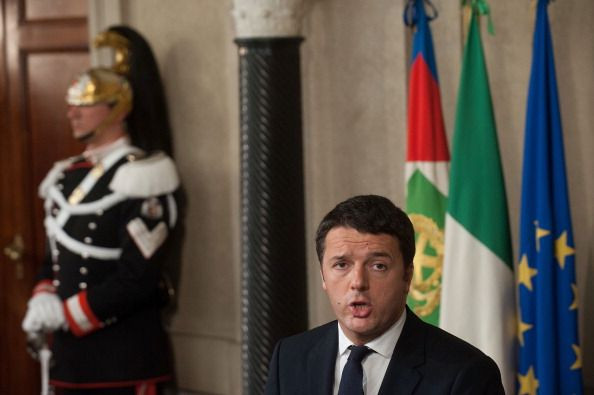Enrico Letta Resigns as Italy's Prime Minister Causing A third Change In The Country's Administration; Matteo Renzi Is The Next Bet

Italian Prime Minister Enrico Letta resigned from his post on Friday after his party rejected him following a dispute at a party meeting, leading to the third change in its administration this year, AP reported Friday.
Letta, 47, reportedly drove to President Giorgio Napolitano’s house to turn in his papers after the heated meeting regarding the launch of Florence’s young mayor to form the government. According to AP, Napolitano accepted the resignation and was expected to ask Matteo Renzi, the young mayor of Florence belonging to the Democratic Party, to form the government.
Holding his post for only 10 months, Letta was under tremendous pressure to stabilize the economy, which has been battered by a steep rise in its unemployment rate (12.7 percent among young people, the highest in 40 years), the slow pace of reforms, and a constant decline in the income and living standards of its residents.
According to a report by the BBC, Letta was criticized in the meeting for a lack of action to improve the economy, which has seen a decline of 9 percent over the last seven years. Based on these accusations, Renzi called for a vote to oust him.
Letta decided to step down and announced it on Twitter, thanking his supporters. “At # Quirinale to resign to the Head of Stato. Grazie to all those who helped me,” he tweeted.
With another change in the Italian administration, Renzi has become a popular choice for the Democratic Party leaders as the next-in-charge. Nicknamed the “Demolition Man,” the 39-year-old mayor will be the youngest prime minister for the country, if elected. He has called for “radical change” to get the country back on track.
"If we don't take risks and we don't take responsibility now, the slow pace of reform, without a strong push on our behalf, could result in losing our economic competitiveness," Renzi said at the party meeting on Thursday, according to CNBC.
Italy’s debt as a proportion to its GDP was 127 percent in 2012, close to Greece’s debt level of 159 percent, according to Eurostat, a European statistics database.
"The takeover of Renzi is likely to be seen by the market as a moderately positive event as it would increase the likelihood of an acceleration of the reform process in Italy," Fabio Fois and Giuseppe Maraffino, two analysts at Barclays said in a research note on Thursday, according to CNBC.
© Copyright IBTimes 2025. All rights reserved.





















